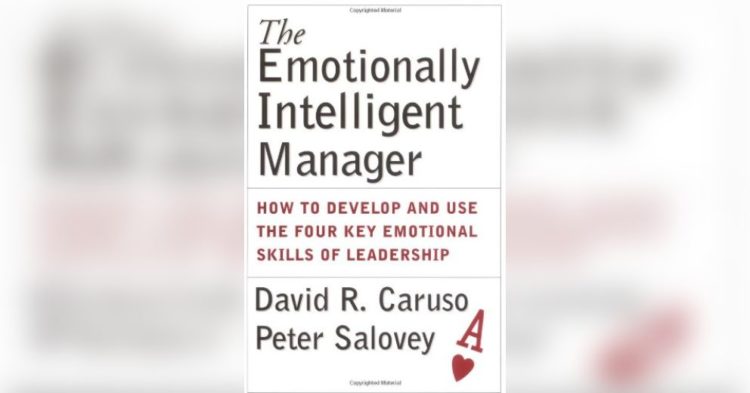Last Updated on May 25, 2022 by Editors Desk
We have long been taught that emotions should only be felt and expressed in carefully regulated situations and at specific times. This is especially true at work, especially while in charge of people. This blog explores the book summary of The Emotionally Intelligent Manager by David R. Caruso and Peter Salovey.
It is regarded as quite unprofessional to display emotion on the job, and many of us feel that our greatest blunders and regrets are the result of our reactions when our emotions get the best of us. David R. Caruso and Peter Salovey disagree with this interpretation of emotion. The authors detail a practical four-part hierarchy of emotional skills: identifying emotions, using emotions to facilitate thinking, understanding emotions, and managing emotions—and show how we can measure, learn, and develop each skill and use it in an integrated manner to solve our most difficult work-related problems.
The Emotionally Intelligent Manager Book Summary

This book presents a prescription for good management and leadership, based on the important role of emotions in thinking, decision making, motivation, and behavior. Emotional intelligence is defined as a person’s ability to effectively reason about emotions and utilize emotions to improve thinking and solve issues.
We are taught that emotions should not be felt and should only be expressed with caution and at specific times. However, an emotionally intelligent manager replaces the convectional view of emotions with an educated one, combining passion with logic and emotions with intelligence.
The following are the key emotional competencies of an emotionally savvy manager:
- Identifying emotions: In order to communicate successfully, we must read others by becoming aware of their feelings and appropriately conveying them.
- Emotions impact our thoughts, and we should adapt our emotions to the tasks.
- Understanding emotions; emotions are not random happenings; there are underlying reasons; we should forecast emotion futures and learn what feelings signify.
- Managing emotions necessitates remaining open to feelings and incorporating emotions into our thinking.
- Emotionally bright people are not always excellent managers, and not all great managers are emotionally intelligent; consequently, good management is required. Emotions are important at all times, and ignoring them means denying the wisdom of our own and others’ emotions. Integration of intellectual and emotional styles is critical for making successful judgments since emotions are always at work, both with and against us.
- As they affect and influence people, managers may develop successful teams, organize and decide effectively, encourage people, express a vision, promote change, and create good interpersonal relationships.
- Emotions are data: they carry information about you and the world, they are events that interfere with thinking and assist motivate and steering success. We must be able to distinguish between emotional experience and the impact of being in a particular mood.
- We attempt to avoid emotions, but it never works: emotions always have an impact on our performance in all aspects of our lives.
- We can try to disguise our feelings, but we are not as good as we think: certain individuals will read your emotions most of the time.
- To be effective, decisions must involve emotions: emotions have an impact on our decisions, on ourselves, and on others, whether we want them to or not.
- Emotions have a logical pattern: they are not random occurrences; each feeling has its own move.
- Emotions are universal, but so are details: conventions and culture differ, yet emotions may be universally recognized, and there are emotional specifics related to display regulations, secondary emotions, and gender.
The emotional blueprint provides an intelligent approach to emotions that does not undermine the importance of logic or reason. An emotionally intelligent manager must describe the situation, identify the emotion, use the emotion, predict the emotional future, understand the emotions, and manage the emotions in order to motivate and inspire them. Emotional abilities can be objectively assessed using performance or knowledge exams.
Bottom Line
Caruso and Salovey present research in The Emotional Intelligent Manager that demonstrates the relevance of these abilities in the workplace. They will give you step-by-step directions on how to use and use these abilities. Hope this book summary was helpful to you. Keep following for more such content.
Also Checkout: Emotional Intelligence By Daniel Goleman – Book Summary



